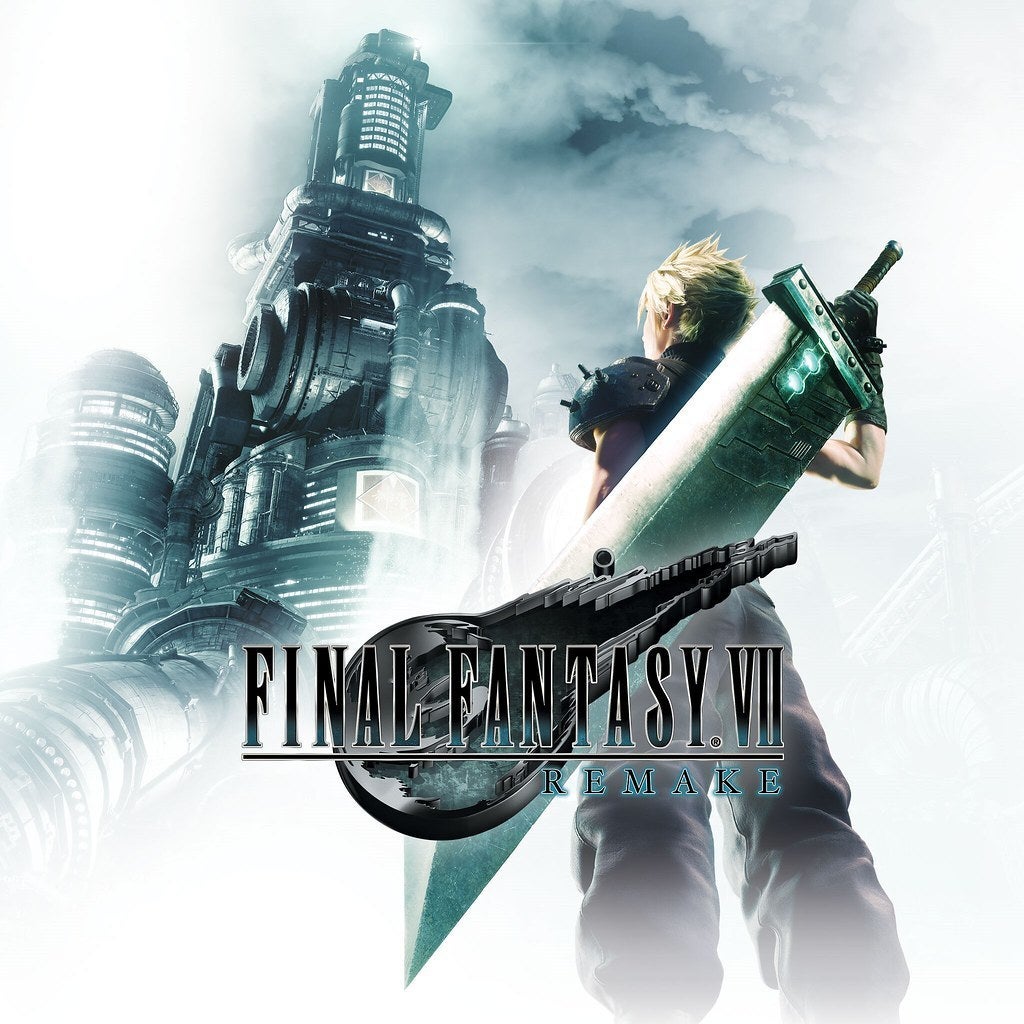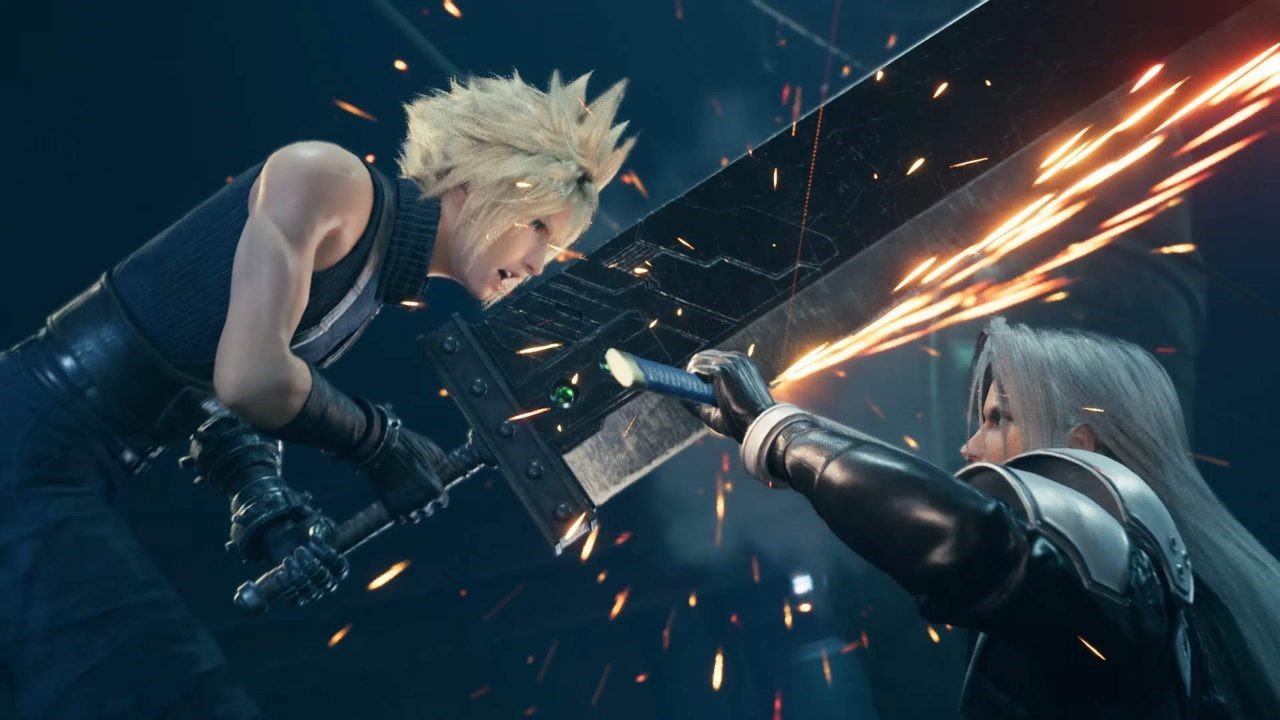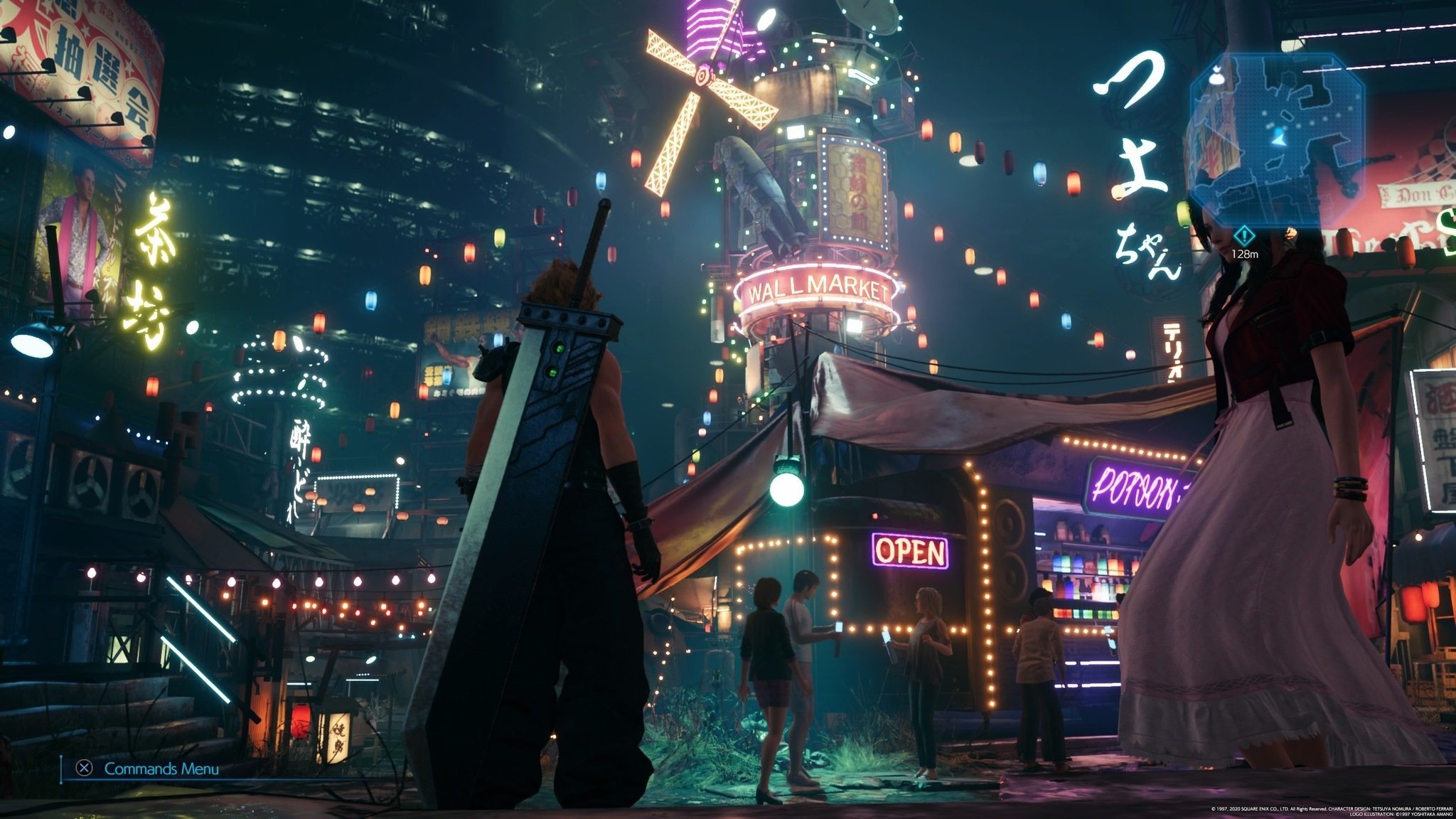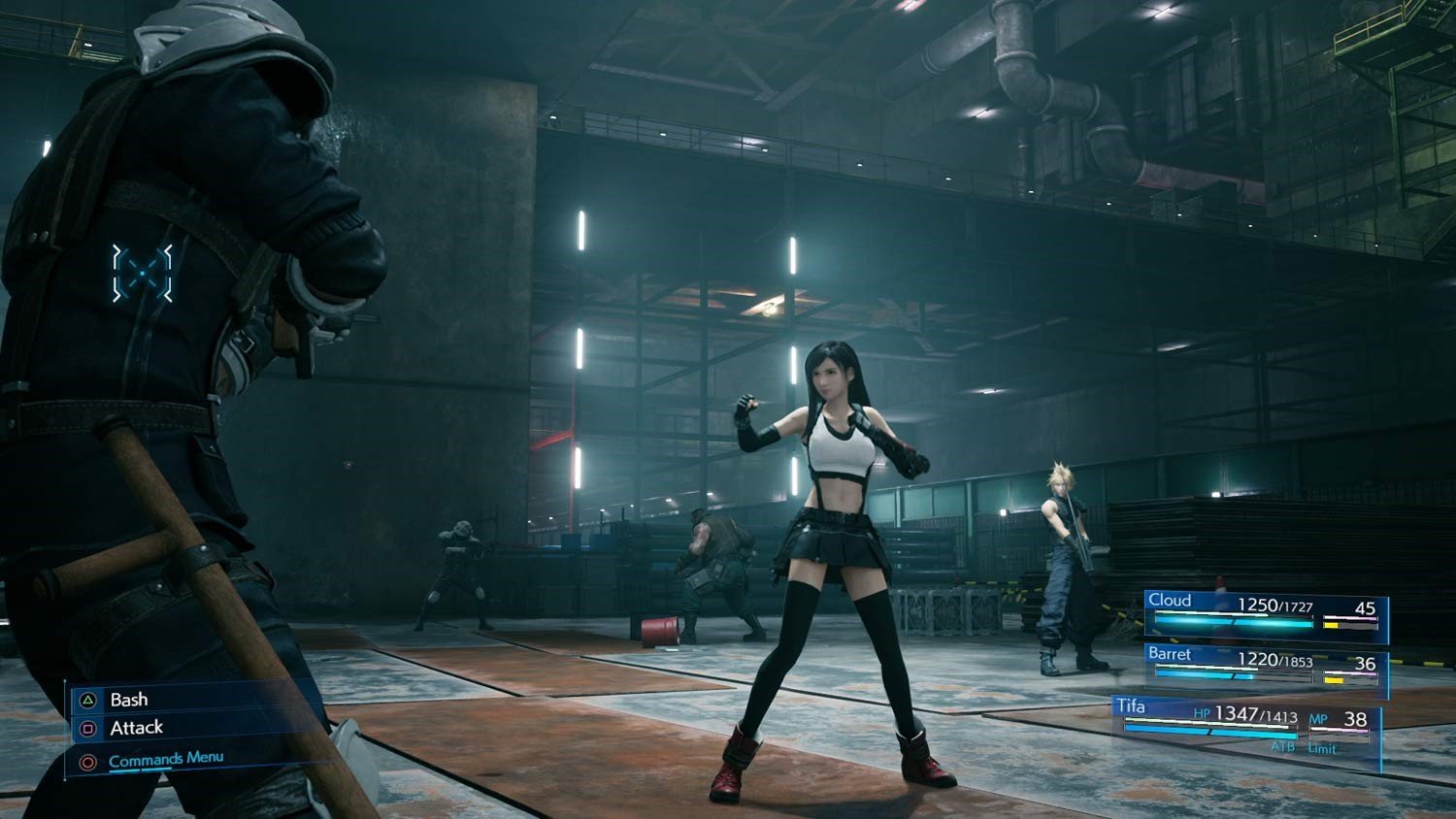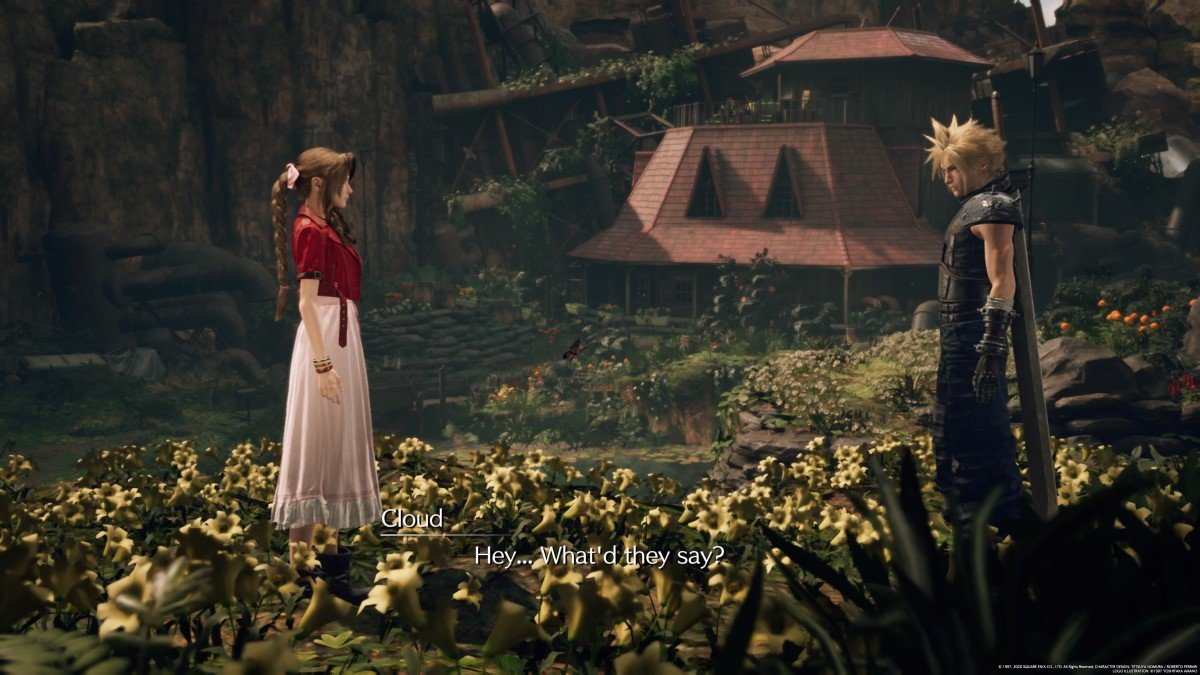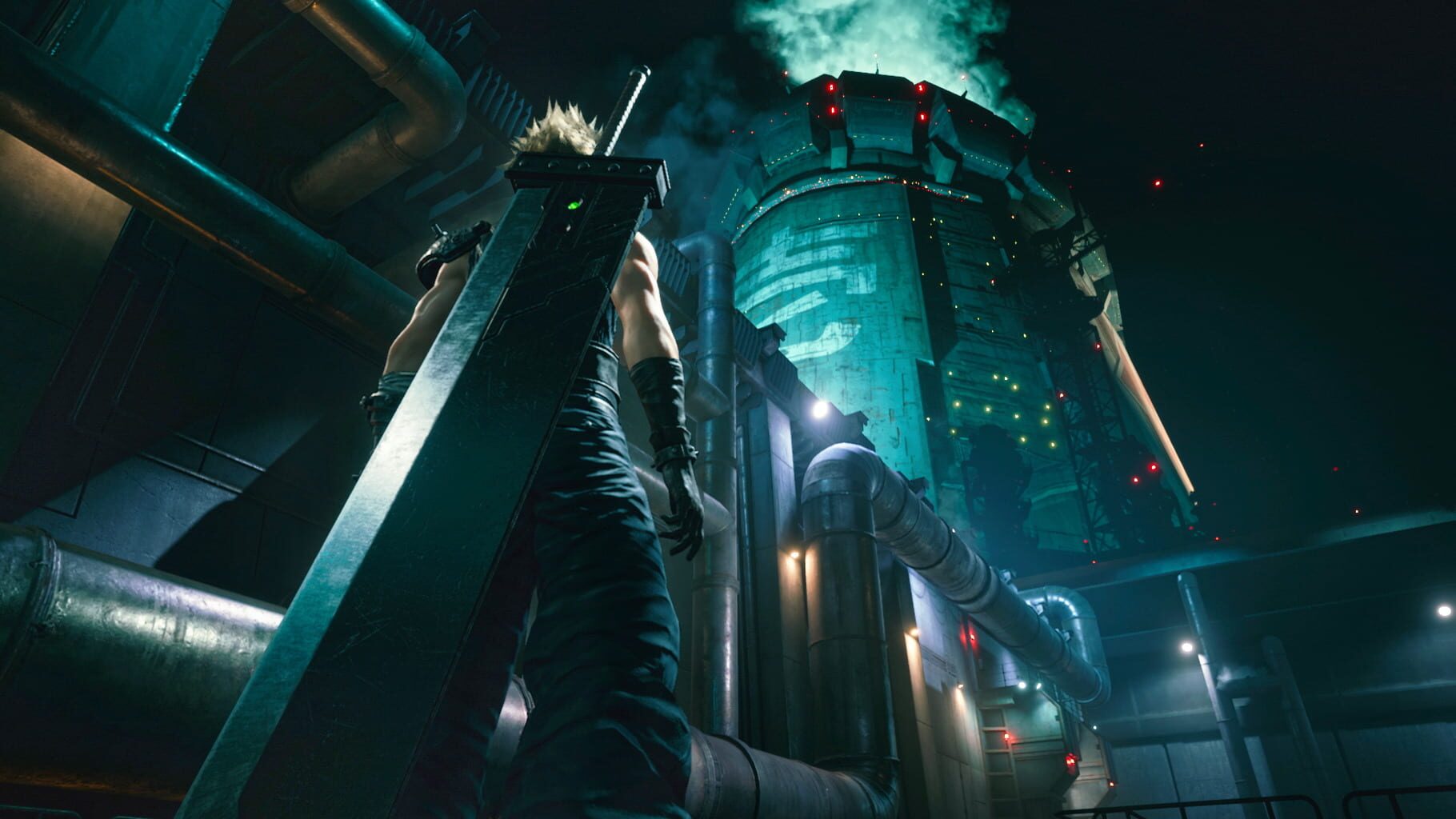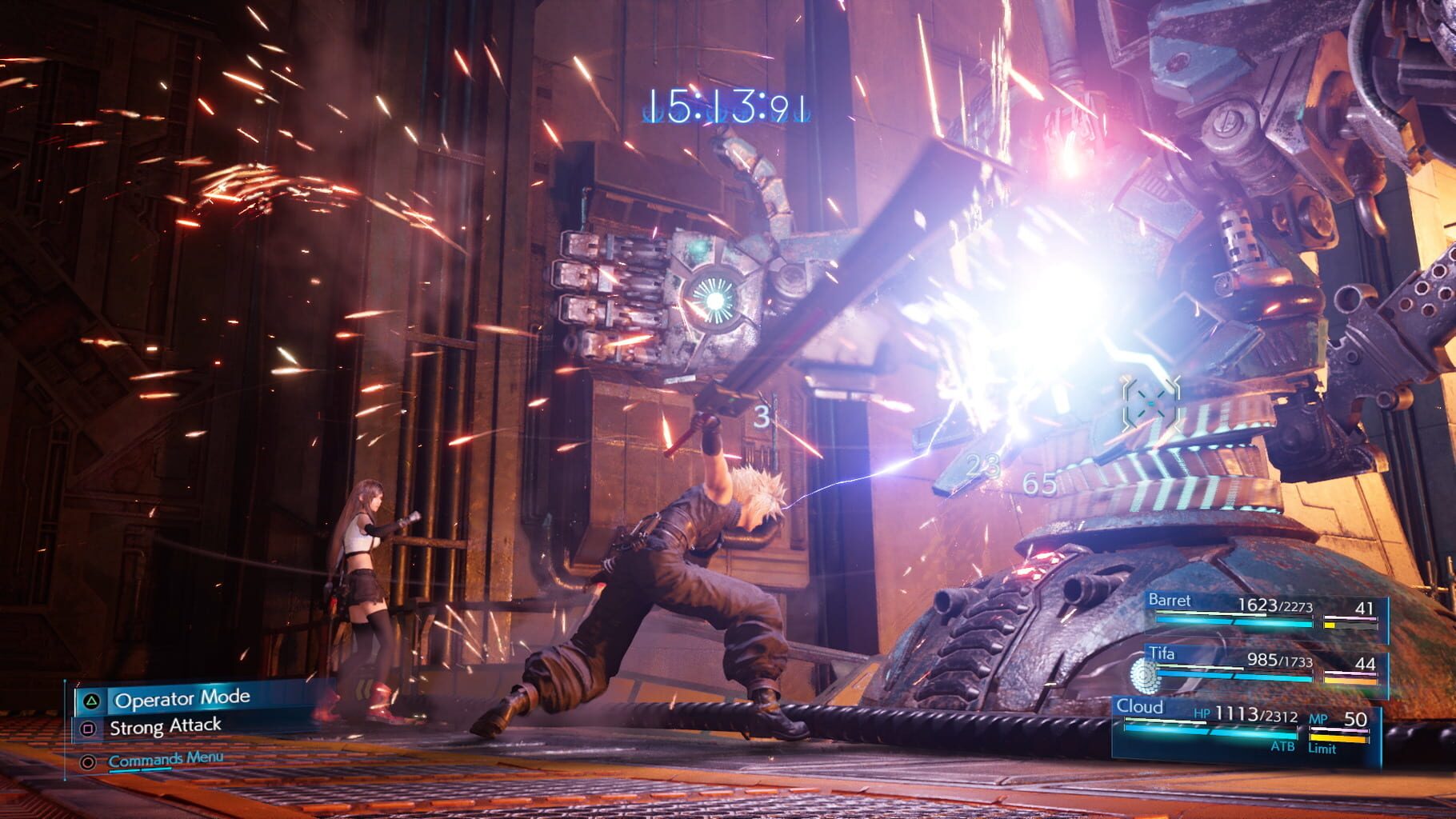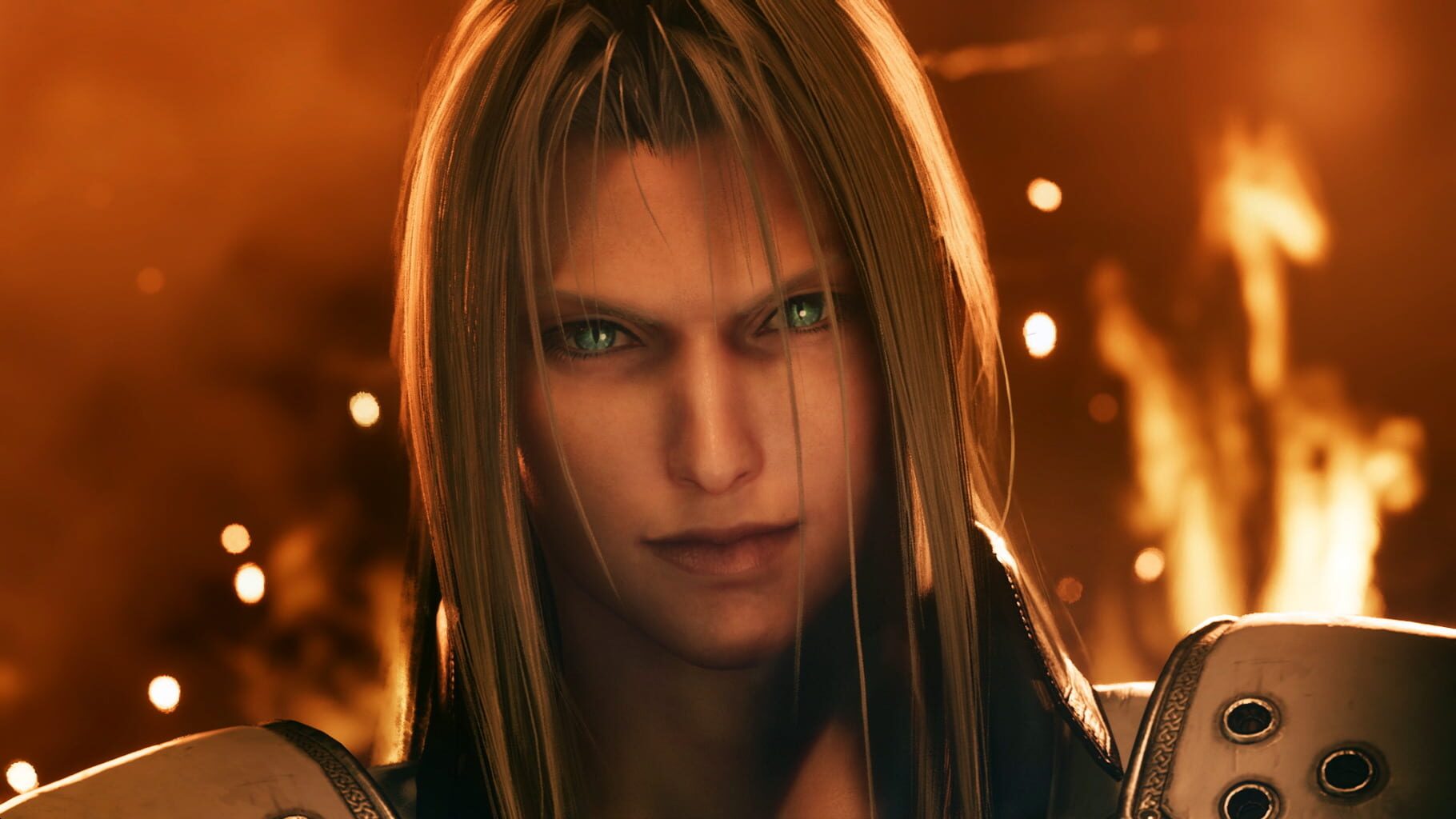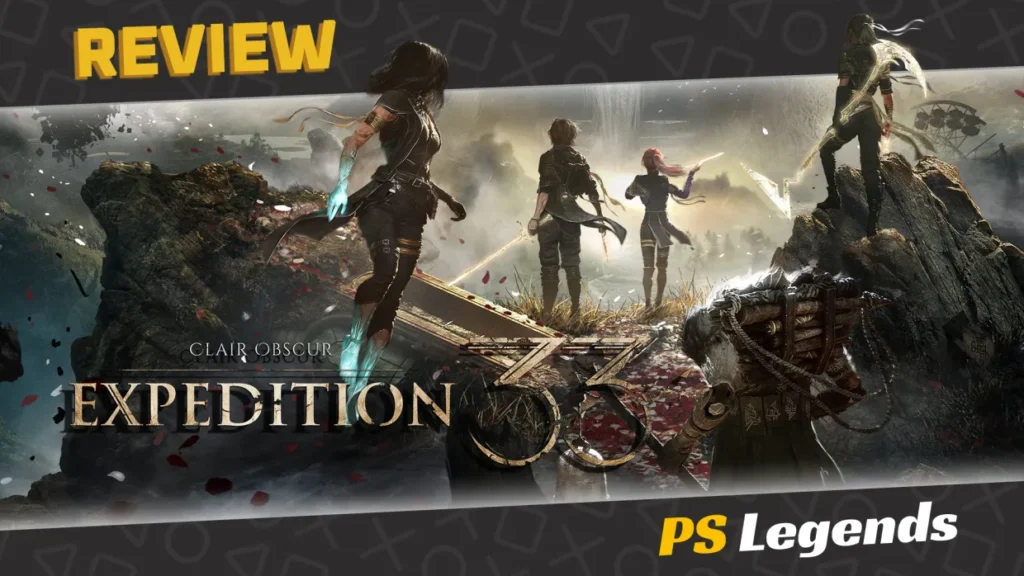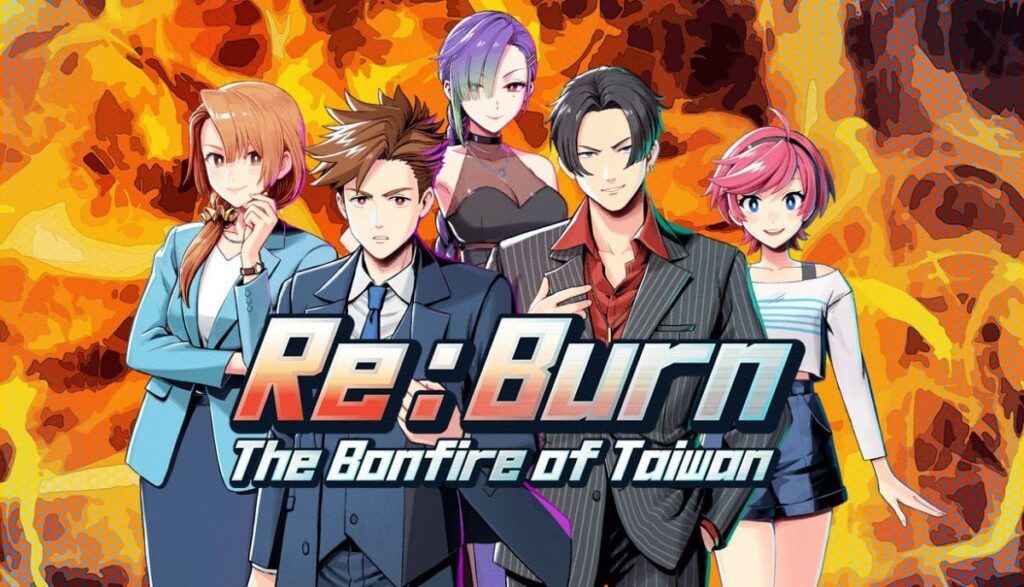I think it was Oprah Winfrey who said she wouldn’t run for US President because doing so would make half the country instantly hate her, and she’s rather fond of being generally amicable with all. That’s pretty much how I feel writing a review for Final Fantasy VII Remake. I have never encountered a game that has divided its audience as much as this one. Love it or hate it, this is the vision Square-Enix chose for the future if this ever-expanding franchise-within-a-franchise.
I’ll do what I came here to do, but I’m not going to enjoy it. As something of a veteran in the field, I wouldn’t want Final Fantasy VII Remake to be ‘the one that got away’. Reviewing a game often leaves the respective writer with a feeling of catharsis, proudly sharing their passion for their chosen game or educating others on noteworthy flaws. Reviewing Final Fantasy VII Remake just fills me with dread. I am but one voice, lost in an ocean of critics. Today, I face fear head-on. To survive, I don’t need luck; I need clarity, and only a 2,700-word bastard will do.
On This Page
Introduction
I’ve played through the masterpiece that is the original Final Fantasy VII so many times on a variety of different consoles that I wouldn’t be remotely offended if someone were to brand me a ‘fan-boy’; Heck, I’d be proud of it. But let’s get one thing absolutely crystal clear before we begin: Final Fantasy VII Remake is not actually a remake, not in the traditional sense anyway. Ignore the title for now; 2020‘s Final Fantasy VII Remake is a reimagining, a retelling, an alternative timeline spin-off, and only a partial one at that.

Final Fantasy VII Remake is only a small percentage of the whole story. A very small percentage. Centred around the party’s beginnings in the multi-layered classic dystopian city of Midgar, up until their eventual first steps into the outside world means that Final Fantasy VII Remake shockingly only retreads around 10% of the ground covered in Final Fantasy VII, and that’s a troublingly low amount.
Sure, there’s more to come, but slow-released episodic content is incredibly time-consuming and expensive. That certainly wasn’t the marketing strategy we had to try to make peace with for the original game. After 25 years of hardware advancements, Midgar still doesn’t feel as grand as it claimed to be, so I can only hope the time bought by cutting so many corners here has been spent shaping a far more ambitious follow-up. The world of Gaia will feel dreadfully small if it leans on the practices presented here.
Kazushige Nojima, who penned the original Final Fantasy VII and its subsequent side stories, returns to rebirth his creation from over two decades ago. Nojima hasn’t been sitting on his hands for the last 25 years; He’s spent years fleshing out the worlds he’s created in his games via spinoff titles, books, and impressive CGI movies.
With Remake, he’s expanded it considerably, further extending a tiny yet memorable section of the original game into one that fleshes out its world and characters to such a degree that 4 hours of content has now become 40 hours. A respectable feat of writing dedication, but is that really what the fans want?
As well as massively expanded environments and dialogues, new to this retelling are characters who weren’t present in the original game, many of whom bring moderate plot developments with them. Once you dive into the details, there’s more to this, including ways to cheat fate by allowing the party to access powerful weapons, experience, skills, and magic far earlier than initially planned.
Yes, it’s definitely best to keep an open mind when exploring this reimagined version of the game we know and love. There are many changes here, and not all are for the better. Even being forced to accept the name change of Aeris, as she’s known internationally, to the Americanised ‘Aerith’ can be a bitter pill to swallow.
Story
Unless you’ve been living in a cave on Mars, with your eyes shut and your fingers in your ears, you’ll likely already know the story of Final Fantasy VII, but in this retelling, we have a few twists in the tale, and we’ll get to those in a moment. First, let’s reacquaint ourselves with the basics.

Gaia is an evolving world in the midst of a booming industrial, technological, and financial revolution. The world is economically, militarily, and politically dominated by the powerful conglomerate that is the Shinra Electric Power Company, which provides essential services and utilities to most communities throughout the world.
Unfortunately, it turns out much of Shinra’s success stems from the fact that they are quite literally sucking the life out of the planet, converting mako energy into electricity using its multiple reactors. Unbeknownst to most of the world, Shinra’s existence hides many other atrocities committed since its rise to power, including public manipulation, abuses of authority, unethical experimentation, human rights violations, civil inequalities, military oppression, as well as repeated denial of the detrimental effects of using mako energy.
Those who dare to question Shinra’s unethical practices soon find themselves ‘disappearing’. One military deserter with a target on his back is a young man struggling with PTSD named Cloud Strife. After joining Shinra’s elite military unit, Soldier, in order to impress childhood sweetheart Tifa, Cloud reunites with Tifa years later in the bustling urban metropolis of Midgar when he leaves Shinra under mysterious circumstances and takes on jobs as a freelance mercenary.
Suffering from headache-inducing memory lapses and voices in his head, Cloud’s PTSD manifests as a slow but staggering mental breakdown. Fortunately, Cloud finds new purpose working with the anti-Shinra terrorist cell, Avalanche. It’s up to Cloud, Tifa and Avalanche’s leader, Barret, to bring down Shinra, until they inevitably bite off more than they can chew and need to go on the run along with Aerith, a fellow slum-dweller with mysterious magical abilities which have caught Shinra’s attention.
Cloud’s goal is to bring down Shinra while also keeping his friends out of danger. Fortunately, the world is also shaken by a well-timed distraction in the form of the reappearance of Cloud’s former Soldier mentor, Sephiroth, a hero of the recent Shinra-Wutai war before going rogue and also ‘disappearing’, presumably killed in combat.
All, however, is not what it seems. You see, this is a story that’s been told before (hence the ‘remake’) and Square-Enix, the game itself and even glorified antagonist Sephiroth are all too aware of this. Sephiroth will discreetly communicate with Cloud, appearing as a hallucination to provide subtle hints about the future and the possibility of avoiding some uncertain tragedy.
Altering the course of predetermined history has consequences, as Sephiroth nudges Cloud in the direction of making small but notable changes to the timeline which invite the unwanted attention of ghostly, invisible entities known as ‘Whispers’. Whispers seek to protect the established course of history, making them both friends and foes to Cloud’s party, and the last thing Cloud needs is another enemy.
Gameplay
Whilst you won’t get to see anything close to the entirety of Midgar, the locations you can visit have been expanded considerably. The game pushes you to explore these environments to find every last nook and cranny and the characters and trinkets within. Town hub sections often trigger guided tours of sorts when you first arrive, leaving certain sections feeling more like a walking simulator.
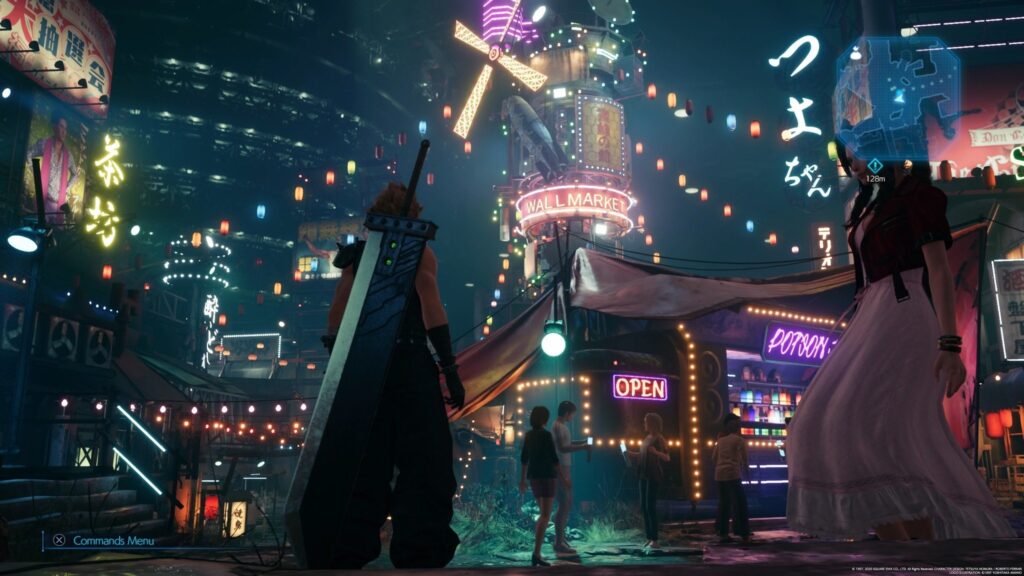
Introducing more repetitive gameplay elements so soon doesn’t help the pacing at all. You’re at the mercy of some truly patience-sapping sections each time the story decides to take a breather. In between the engrossing cutscenes that put the 2005 movie to shame, it’s a slow-moving, script-heavy adventure through dark tunnels, corridors, and lively shanty towns, with very little variety to tell each section of the slums apart, and you’ll spend most of your time here.
Combat in Final Fantasy VII Remake is handled almost entirely in real-time. It’s a major difference from the original’s turn-based system and one that doesn’t always yield the best results. Aesthetically, it’s superb to watch since attacks manage to add realistic weight with plenty of spectacle, whilst the iconic summons feel tossed in with very little fanfare. Tearing them out of their assigned Materia and having them wreak havoc is almost enough to detract from some of the harsher realities of this otherwise convoluted battle system. There are plenty of combat options to give you a nice variety to play around with, the problem is you don’t really need to. Cloud’s melee combos and Limit Break special attacks got me most of the way through the game, only needing to switch to gunner Barret when I needed to snipe the occasional out-of-reach enemy. Despite Tifa and Aerith being two of my favorite characters in the original game, I simply had no reason to use them here, and switching to them seemed more trouble than it was worth since I risked losing my momentum, and that doesn’t feel right.
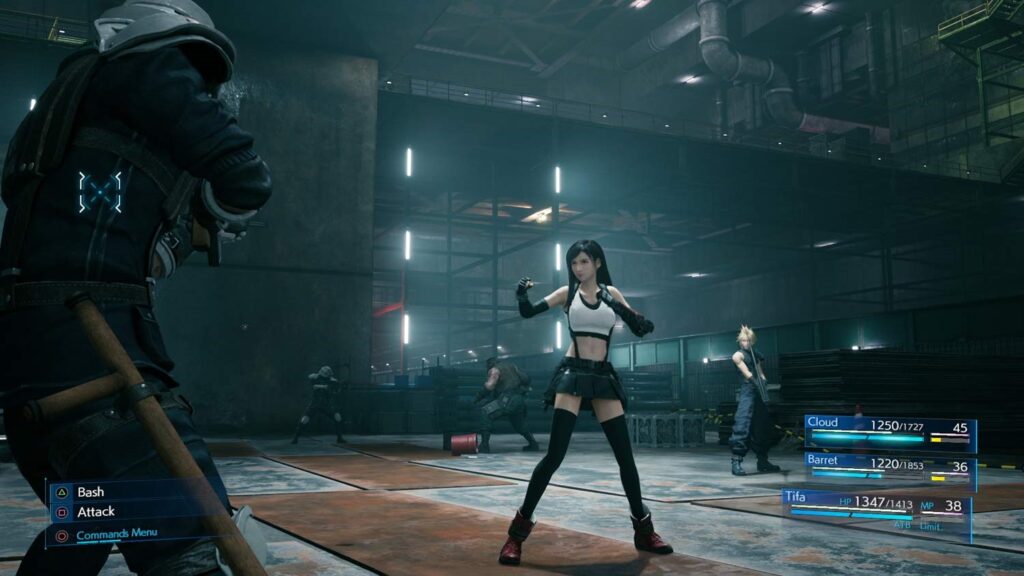
You’ll usually be absolutely fine sticking with Cloud since you don’t really gain any rewards for mixing up your party. Yet, there’s an absolutely bizarre penalty in the form of your uncontrolled party members being unflatteringly incompetent. Tifa will swing punches at the air while Barret will fire round after round of ammo into the nearest wall. It’s quite amusing at first and then annoying.
When it dawns on you how little your party actually help in combat, battles can feel like a lonely experience, and it’s not hard to work out where this style of gameplay comes from. Consider also the linear, chapter-based gameplay and you’ve got a game flow that mirrors the prequel Crisis Core. That being said, combat can be incredibly satisfying when the AI kicks in during boss fights and the stylish combos and magical explosions start flowing.
Graphics/Sound
Credit where credit is due, Final Fantasy VII Remake looks superb. When we consider that the real-time cutscenes here trump even the pre-rendered footage of the Advent Children movie from the mid-2000s, it’s incredibly impressive to see just how far we’ve come. Despite the limited number of environments available, the game uses every opportunity it has to bring variety to its colour palette and contrasting light and shade.
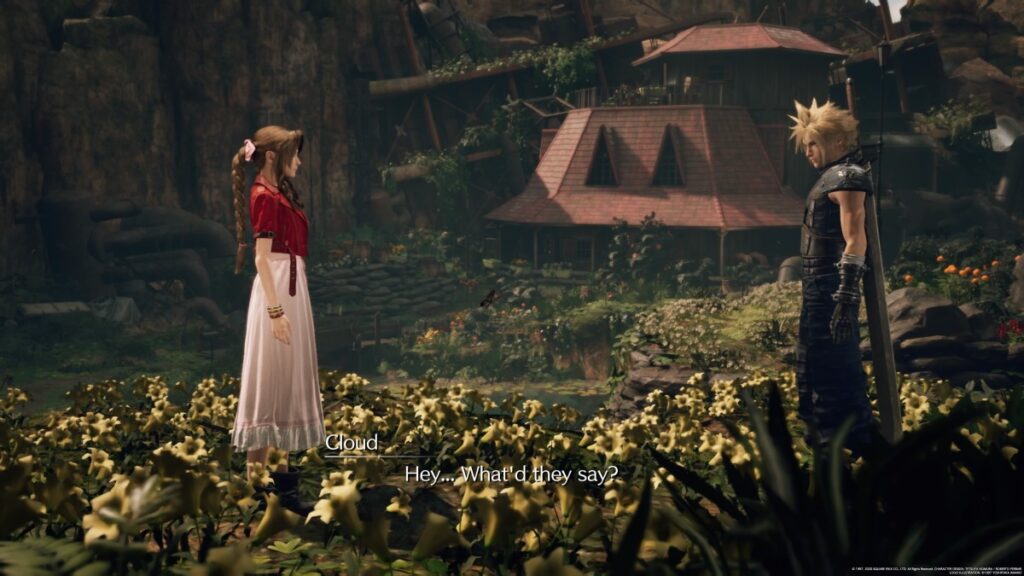
Tunnels are dark and mildly intimidating, the slums are shanty towns built from a diverse collection of scrap materials, while Wall Market is a neon-lit night-scene filled with gaudy and sinful attractions. Youths will dance in the streets, locals will chat and flirt with each other, and gossip runs rampant.
It’s like Square-Enix has hired every voice actor on the planet to breathe life into these quirky dwellings, and it’s delivered consistently well throughout.
With Nojima doing what he does best, composers Masashi Hamauzu and Mitsuto Suzuki join counterpart Nobuo Uematsu to re-score the game’s classic soundtrack. New additions like the hip-hop sound of the dingy Collapsed Expressway and the completely reworked Wall Market theme are two new additions, but the biggest achievement in the sound designs has to be the transitions, where two tracks seamlessly blend into one another, rather than stopping one track and starting another once combat begins.
Replayability
Forty hours is enough to get you through the game, but if you want to tie up loose ends and tackle any of those missable side-missions or mini-games you missed the first time, you’ll need to restart their respective chapters. A guide is absolutely essential for making sure you find everything.

Finishing everything will be most of your platinum trophy journey, and that’s quite a daunting task. You’ll also need to replay a few chapters multiple times to see the outcomes of player choices and finish some particularly challenging optional boss fights in Shinra’s battle simulator. I don’t know about you, but needlessly hanging around in enemy territory feels counterproductive. Oh, then you get to do it all over again on ‘hard‘ mode. Yep, avoid trophy hunting if you value your sanity.
Conclusion
Final Fantasy VII Remake is an odd experience. It’s here to take things in a new direction more than two decades after the original gave us a hero and villain almost as iconic as Sonic the Hedgehog. While bold and sometimes beautiful, this much-anticipated update is the latest casualty of a company putting too much faith in its overworked designers and allocating funding to the wrong places.
As a result, like obvious inspiration Crisis Core, Final Fantasy VII Remake feels like a sluggishly bloated game. When the base story elements kick in, it’s a joy to behold, but such moments are hidden behind wall after wall of filler as we become intimately familiar with characters who had no identifiable role in the original game yet offer no meaningful contribution to the task at hand. You’ll spend quite a bit of time making friends with a turncoat gangster named Leslie, a Shinra intern Materia researcher named Chadley, and a pretty slum-dwelling troublemaker named Kyrie.
The effort put into fleshing out the characters pays off with your playable and non-playable party of Avalanche members, particularly the lovely ladies. Tifa isn’t simply degraded to ‘the one with the big boobs’ as careful attention is made to making her a skilled athlete with a realistically toned physique, though she and Cloud aren’t quite so flirty this time around.
Love interests in Cloud are still there, though. Aerith certainly has more of a visual presence now, being a more confident community leader and charming Cloud’s support and cooperation whenever she can, but it’s when she dons that iconic red dress in Wall Market that Cloud’s jaw hilariously hits the floor. However, she’ll have tough competition as Avalanche’s bouncy tech expert, Jessie, can’t wait to get into Cloud’s pants.
After years of waiting, it pains me to say Final Fantasy VII Remake fails to impress truly. The classic storyline (or at least this small sample of it) benefits greatly from stellar voice acting, but how you extract the remnants of the epic tale that changed a generation is nothing short of a slog. Running up and down corridors and staircases for dozens of hours is a drag. Mini transitional sections in the original game, such a 2-minute-long tunnels acting as shortcuts through the slums are now needlessly overlong 45-minute dungeons.
While the combat system can offer some truly epic boss fights, mountains of fluff and pointless busy-work reminiscent of an Atelier game clutter the hours in between, in with this filler, there’s still very little freedom of movement here. It’s just a linear campaign with not much else to offer beyond its iconic music and pretty visuals.
The mood-setting is spot on, but every residential area feels far more overpopulated than it did the first time around. Where the members of Avalanche felt like welcome assets to their small communities in the original game, now it’s far too easy to get lost in the crowd. The previously warm Sector 7 feels busy and less homely now.
World-building is undoubtedly there, but with every environment now completely rebuilt and expanded, it feels like exploring brand new areas rather than familiar favorites, but the moment you start saying no to distractions and focus on the task at hand, you’re reminded of just how little landscape there is to explore overall. The complete Final Fantasy VII is a fascinating, emotional globe-trotting adventure, but this 40-hour sample is anything but.
Whether you want to think of it as an episode of a much grander adventure or a stand-alone partial reimagining, the unfortunate fact remains that Final Fantasy VII Remake doesn’t cover enough ground to deliver a satisfying experience and offer decent value for money. It’s more like an expensive demo with added fan-created side content. It’s certainly pretty and playable but not exactly fun or rewarding. This is not what we asked for.
Joys
- Visually excellent
- Fantastic musical rearrangements
- Decent voice acting
Cons
- Very little narrative ground covered
- Far too much filler
- Missing the scope and freedom of the original game
